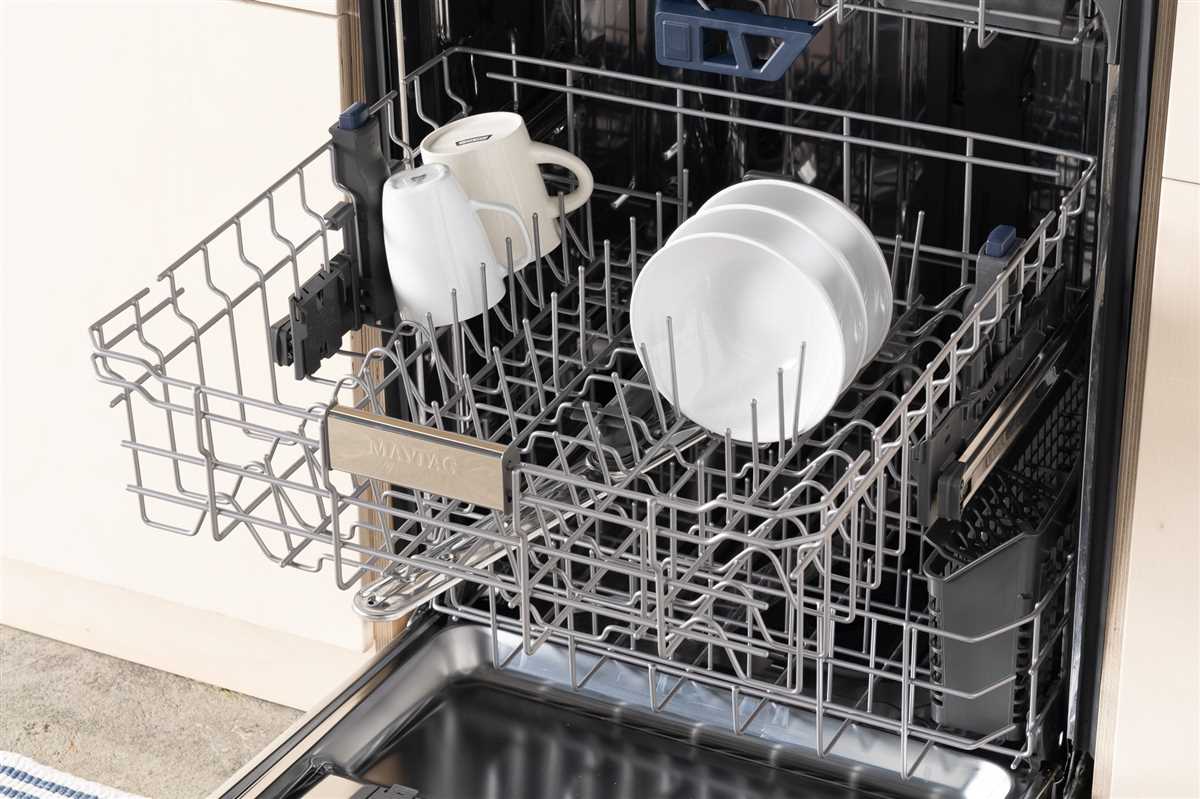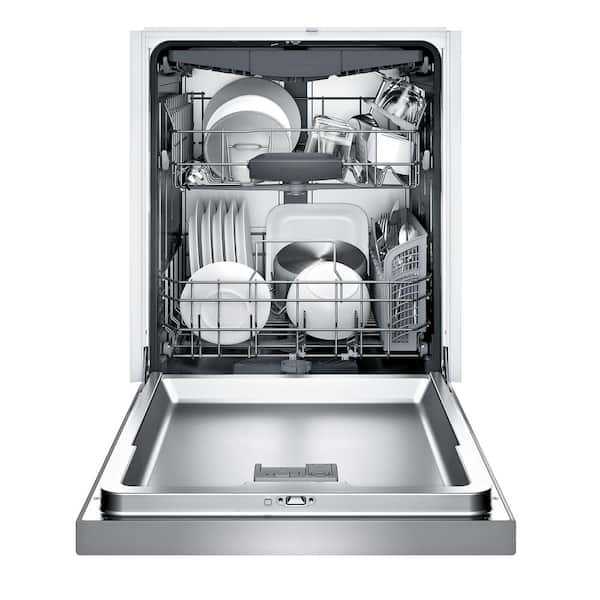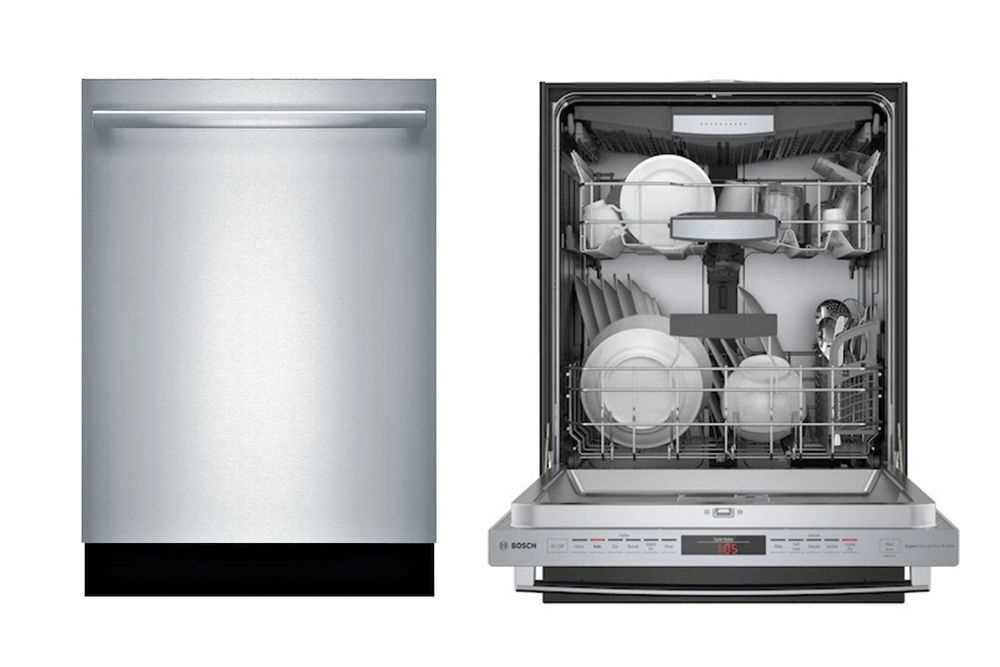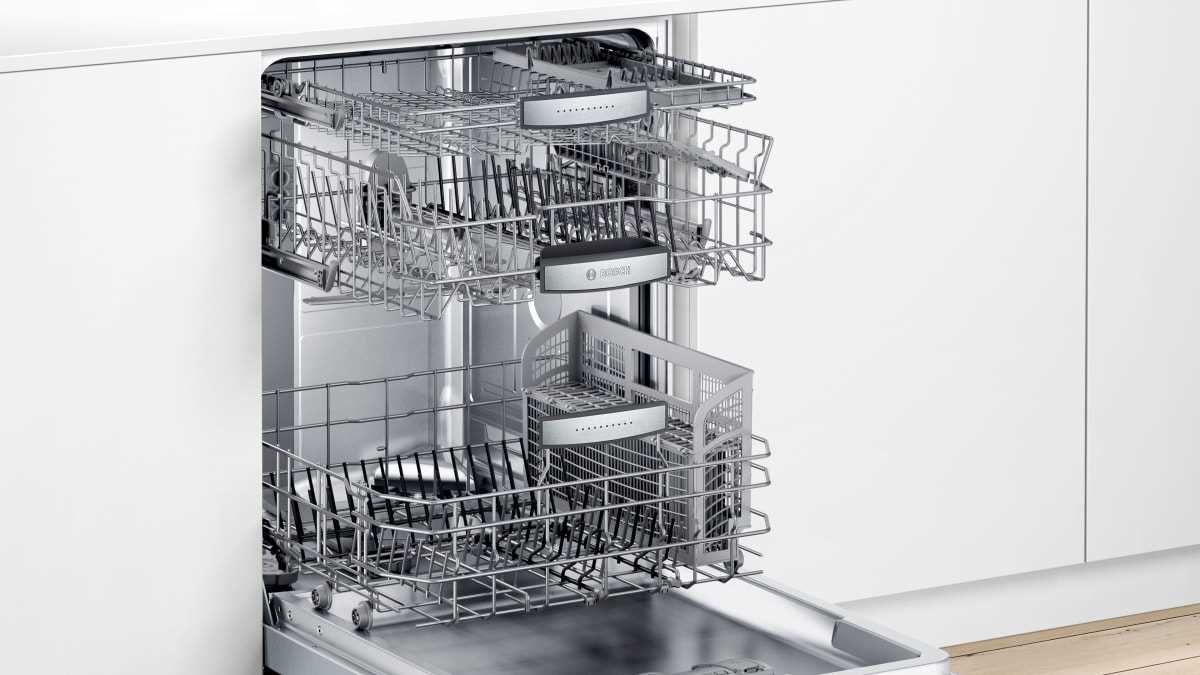


When it comes to choosing a dishwasher, durability and efficiency are often key factors to consider, especially if you have a busy household or use your dishwasher multiple times a day. Whether you have a large family or you simply enjoy hosting dinner parties on a regular basis, finding a dishwasher that can handle the demands of frequent use is essential. In this article, we will explore some of the best dishwashers available on the market that are specifically designed for twice daily use.
A dishwasher that is built to withstand frequent use needs to be able to effectively clean and sanitize dishes while also being energy-efficient. We have researched and tested various dishwasher models to identify the top options that can meet these requirements. From innovative features to high cleaning performance, these dishwashers are designed to save you time and effort, allowing you to focus on other tasks without worrying about the cleanliness of your dishes.
Our list includes dishwashers from reputable brands known for their quality and reliability. We have taken into account factors such as cleaning power, noise level, energy efficiency, and overall durability to provide you with a comprehensive guide on the best dishwashers for twice daily use. Whether you prefer a built-in dishwasher or a portable option, we have considered various types to cater to different preferences and kitchen layouts.
Investing in a dishwasher that can handle twice daily use not only saves you time and effort but also ensures that your dishes are thoroughly cleaned and sanitized. With the right dishwasher, you can enjoy clean and sparkling dishes after every meal, even during periods of heavy use. So, without further ado, let’s explore the top dishwashers that are perfect for daily use and will make your life in the kitchen a whole lot easier.
Best Dishwashers for Twice Daily Use

When it comes to finding the best dishwasher for twice daily use, there are several factors to consider. You want a dishwasher that can handle frequent use without compromising on performance or energy efficiency.
One key feature to look for in a dishwasher for twice daily use is a durable construction. Look for dishwashers made from high-quality materials that can withstand the demands of regular use. Stainless steel interiors are especially popular for their durability and resistance to stains and odours.
Another important factor to consider is the dishwasher’s capacity. Look for a dishwasher with a spacious interior that can accommodate a large number of dishes and cutlery. Adjustable racks and shelves can also be convenient for fitting in bigger items or pots and pans.
Energy efficiency is also crucial when choosing a dishwasher for twice daily use. Look for models with high energy star ratings, which indicates that they are designed to use less water and energy. This can help you save on your utility bills in the long run.
Lastly, consider the different wash cycles and features that the dishwasher offers. Look for dishwashers with multiple wash options, such as heavy-duty, quick wash, and eco-friendly cycles. Additional features like a delay start option or a sanitize cycle can also be beneficial for your specific needs.
Overall, finding the best dishwasher for twice daily use requires a balance between durability, capacity, energy efficiency, and features. By considering these factors, you can find a dishwasher that will provide reliable performance and convenience for your daily dishwashing needs.
Efficiency and Durability

When searching for a dishwasher that can handle twice daily use, both efficiency and durability are key factors to consider. Efficiency ensures that the dishwasher can effectively clean and dry dishes in the most economical way possible, while durability ensures that the machine can withstand the rigors of frequent use without breaking down.
Efficiency: Look for dishwashers that have energy-efficient features such as eco-friendly wash cycles, low water consumption, and high-temperature settings for effective cleaning. Some models even have sensor technology that detects the level of dirt on dishes and adjusts the wash cycle accordingly, ensuring that only the necessary amount of water and energy is used.
Durability: Choose dishwashers that are made from high-quality materials and have sturdy construction that can withstand multiple daily uses. Look for models that offer stainless steel interiors, as they are more resistant to stains, odors, and corrosion. Additionally, consider the warranty offered by the manufacturer, as it reflects their confidence in the durability of their product.
Reliability: Read customer reviews and ratings to determine the reliability of a dishwasher in terms of performance and longevity. Look for feedback from other users who have used the dishwasher for a similar frequency of daily use. This will give you a better idea of how well the machine can handle repeated cycles and if it is likely to require repairs or maintenance in the near future.
Additional Features: Consider additional features that can enhance the efficiency and durability of a dishwasher. Look for models that have adjustable racks and removable utensil trays, as they allow for easy loading and maximize the dishwasher’s capacity. Some dishwashers also offer self-cleaning filters that prevent food debris from clogging the system, leading to more efficient cleaning performance.
Capacity and Size Options
When choosing a dishwasher for twice daily use, it’s important to consider the capacity and size options available. A dishwasher with a larger capacity can accommodate more dishes, making it ideal for families or households that frequently cook and entertain guests.
Some dishwashers offer adjustable racks and shelves, allowing for more flexibility in loading and accommodating different sizes of dishes and cookware. This can be especially useful when dealing with larger pots and pans or odd-shaped items.
It’s also important to consider the size of the dishwasher itself. If you have limited space in your kitchen, a compact or slimline dishwasher may be the best option. These smaller models are designed to fit into tight spaces without sacrificing performance.
Additionally, some dishwashers offer the option of a built-in or freestanding design. Built-in dishwashers are integrated into your kitchen cabinetry, creating a seamless and streamlined look. Freestanding dishwashers, on the other hand, can be placed anywhere in your kitchen and are easier to install and move if necessary.
Before making a decision, carefully measure the available space in your kitchen and consider your specific needs and preferences. By considering the capacity and size options, you can find a dishwasher that meets your daily use requirements while fitting seamlessly into your kitchen layout.
Advanced Cleaning Technology

In the world of dishwashers, advanced cleaning technology is the key to achieving spotless and sparkling dishes, even with twice-daily use. Manufacturers are constantly innovating to create better cleaning mechanisms that can handle tough stains and eliminate bacteria effectively.
One of the advancements in cleaning technology is the use of high-pressure water jets. These jets are strategically positioned inside the dishwasher to target and remove stubborn food particles and stains. The high-pressure jets also help to reach areas that are typically hard to clean, such as corners and crevices, ensuring a thorough cleaning process.
Another technology that has revolutionized cleaning in dishwashers is the use of innovative filtration systems. These systems consist of multiple filters that work together to trap and remove food debris from the dishwasher water. By keeping the water clean throughout the cleaning cycle, these filtration systems prevent debris from reattaching to the dishes and ensure that dishes come out sparkling clean.
Advanced dishwashers also utilize sensors to optimize the cleaning process. These sensors detect the level of soiling on the dishes and adjust the water temperature, detergent dosage, and wash cycle duration accordingly. By adapting to the specific cleaning needs of the dishes, these sensors ensure efficient cleaning while minimizing water and energy consumption.
Furthermore, some dishwashers incorporate advanced drying technologies to ensure dishes are not only clean but also dry and ready for immediate use. These technologies use various methods, such as condensation drying and fan-assisted drying, to effectively remove excess moisture from the dishes, leaving them spot-free and ready to be put away.
In conclusion, advanced cleaning technology has significantly improved the capabilities of dishwashers for twice-daily use. From high-pressure water jets to innovative filtration systems, these advancements ensure thorough cleaning, efficient water and energy usage, and spotless, sparkling dishes. With constant innovation in the industry, the future of dishwasher cleaning technology looks promising for those who demand the best results from their appliances.
Energy-saving Features

When considering a dishwasher for twice-daily use, it’s important to look for energy-saving features that can help reduce your overall carbon footprint and save on utility costs.
1. Energy Efficiency Rating:
Look for dishwashers with a high energy efficiency rating. These ratings are provided by independent organizations and indicate how well the dishwasher uses energy. Opting for a dishwasher with a higher energy efficiency rating ensures that you are using energy in a more sustainable and environmentally friendly way.
2. Eco Mode:
Many modern dishwashers come equipped with an Eco Mode. This feature adjusts the duration of the washing cycle and the temperature of the water to minimize energy consumption. By utilizing this feature, you can prioritize energy-saving over speed and still achieve clean and sanitized dishes.
3. Energy-Saving Options:

Some dishwashers offer specific energy-saving options, such as a half-load function or a delay start feature. The half-load function allows you to run a cycle with fewer dishes, saving both water and energy. The delay start feature lets you schedule the dishwasher to start during off-peak hours when energy rates may be lower.
4. Sensor Technology:
Dishwashers equipped with sensor technology can detect the level of dirtiness on the dishes and adjust the water and energy usage accordingly. This ensures that the dishwasher only uses the necessary amount of resources, reducing waste and optimizing energy efficiency.
5. Water Efficiency:
While not directly related to energy, it’s worth mentioning that water efficiency is also crucial. Look for dishwashers that have a high water efficiency rating, as this will limit the amount of water used in each cycle, resulting in less energy required to heat the water.
By prioritizing these energy-saving features, you can select a dishwasher that not only handles twice-daily use effectively but also contributes to a more sustainable and eco-friendly lifestyle.
Noise Level
When it comes to choosing a dishwasher for twice daily use, noise level is an important factor to consider. Nobody wants a loud dishwasher that disrupts conversations or disturbs the peace in their home. Look for dishwashers that have a low noise level rating, typically measured in decibels (dB). A dishwasher with a noise level below 50 dB is considered quiet and will not be a distraction in your kitchen.
In addition to the overall noise level, you should also pay attention to the different noise levels during different cycles of the dishwasher. Some dishwashers may have a lower noise level during the washing cycle but become louder during the drying cycle. Make sure to check if the dishwasher you are considering maintains a consistent low noise level throughout the entire wash and dry process.
If noise is a major concern for you, consider opting for a dishwasher with features designed to reduce noise. Look for dishwashers with insulation and soundproofing materials that help minimize vibrations and muffle the sound. Some models may also include a special quiet cycle that further reduces the noise level, perfect for running the dishwasher during the night or when you have guests over.
Reading customer reviews and checking noise level ratings for different dishwashers can provide valuable insights on how loud or quiet a dishwasher is in real-life situations. Keep in mind that everyone’s perception of noise differs, so it’s important to find a noise level that you personally find acceptable for your home and lifestyle.
5 Best dishwashers for twice daily use
Features
| Part Number | FSX52927Z |
| Model | FSX52927Z |
| Warranty | 2 year manufacturer. |
| Color | 13 Settings (1) |
Features
| Part Number | CDWMT305W-UK |
| Model | CDWMT305W-UK |
| Warranty | 1 year manufacturer. |
| Color | White |
| Size | Mini Plus - D Class |
| Language | English |
Features
| Part Number | 918-567-728 |
| Color | Black |
| Size | sprayer |
Video
FAQ
What is noise level?
Noise level refers to the measurement of sound in a specific environment. It is typically measured in decibels (dB) and provides an indication of how loud or quiet a particular area or space is.
How is noise level measured?
Noise level is measured using a device called a sound level meter. This device captures and measures the sound waves in an environment and then provides a numerical value in decibels (dB) to indicate the noise level.
What is considered a normal noise level?
A normal noise level varies depending on the location and the activity taking place. In general, a noise level of 40-70 decibels (dB) is considered normal for residential areas, while 70-90 dB is typical for busy urban areas or near loud machinery.
What are the health effects of excessive noise?
Excessive noise can have negative health effects, including hearing loss, increased stress levels, sleep disturbances, and reduced concentration. Prolonged exposure to high noise levels can lead to long-term health issues and should be avoided or minimized whenever possible.
Conclusion
In conclusion, understanding and managing noise levels is essential for maintaining a healthy and productive environment. Excessive noise can have negative effects on our physical and mental well-being, leading to stress, fatigue, and reduced concentration. It is important to be aware of the sources of noise in our surroundings, such as loud machinery or traffic, and take necessary measures to reduce or mitigate their impact. This can involve soundproofing measures, wearing ear protection, or implementing policies and regulations to control noise pollution. By prioritizing noise control, we can create a more harmonious and peaceful environment that promotes productivity, enhances quality of life, and protects our health.












